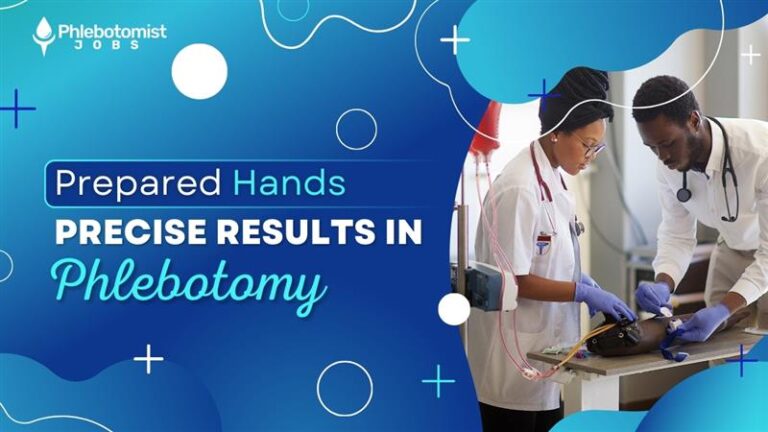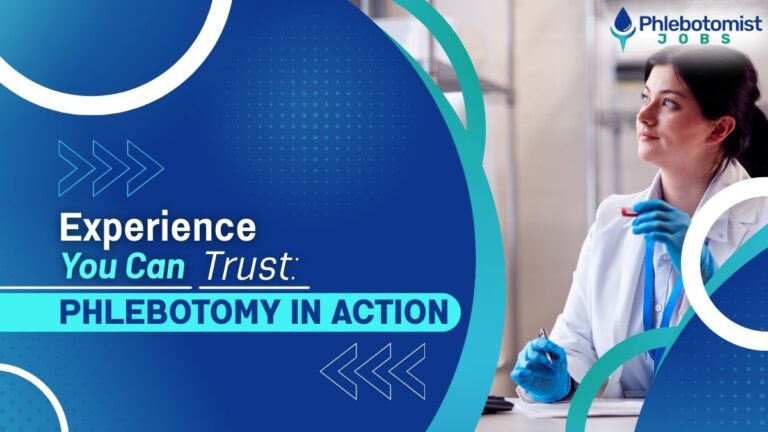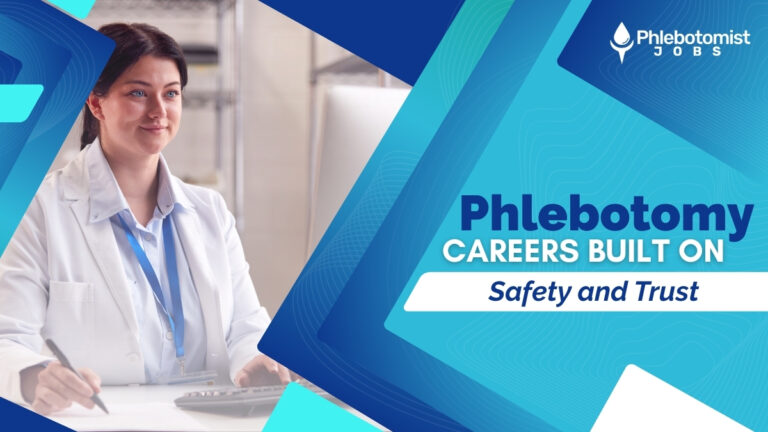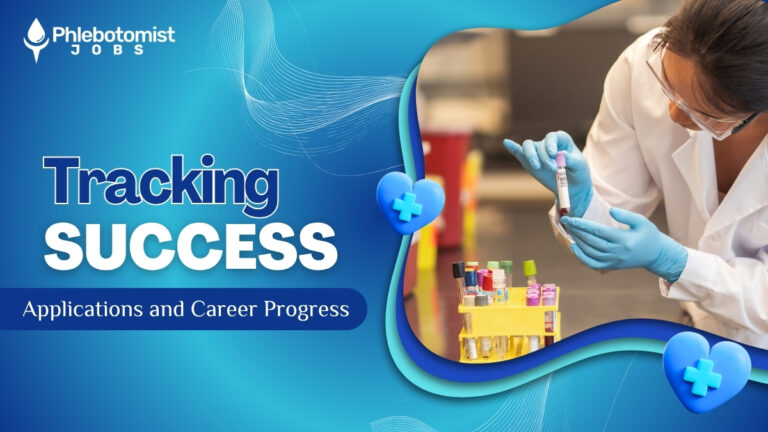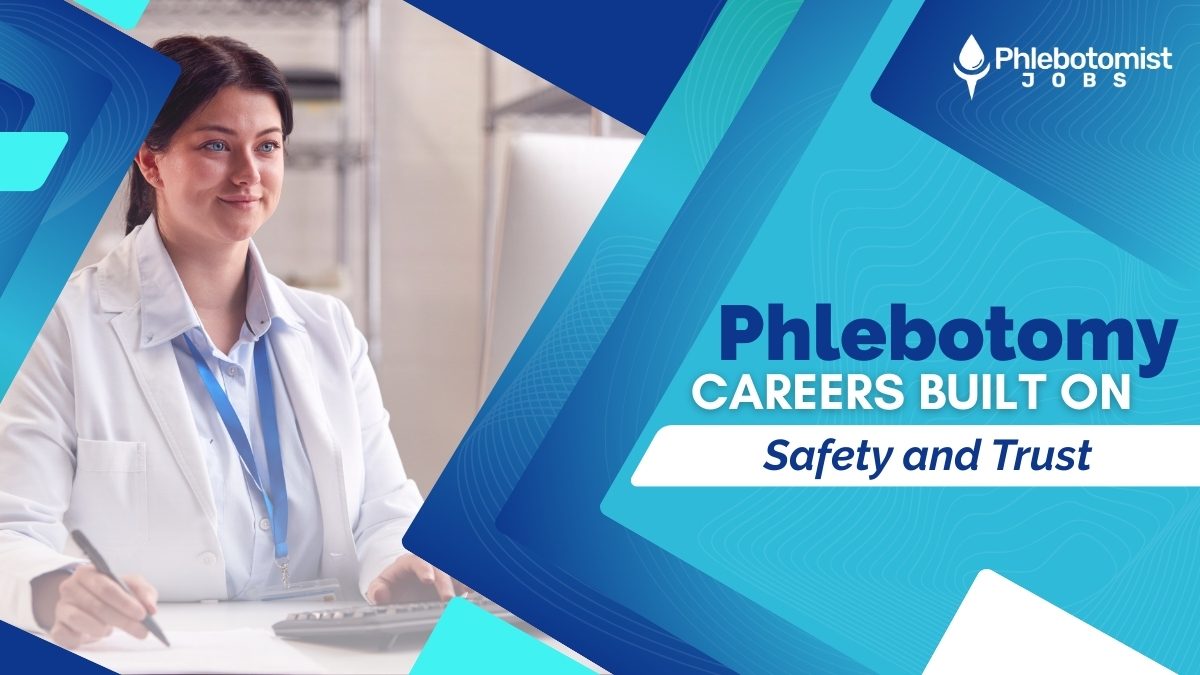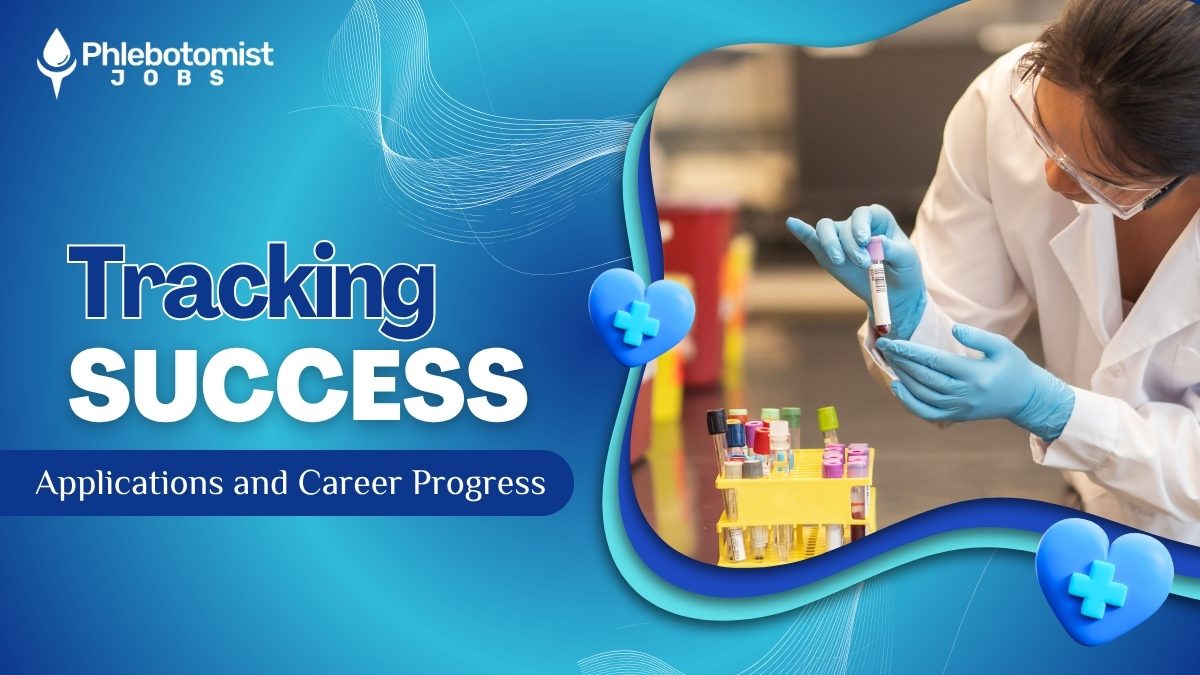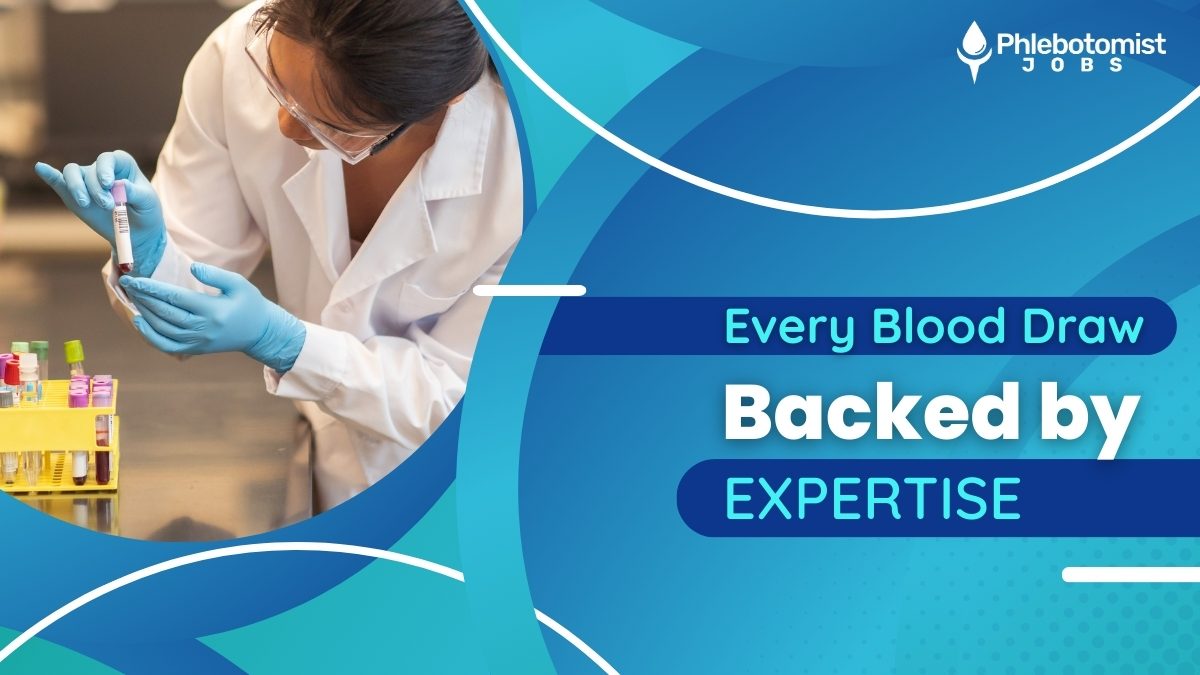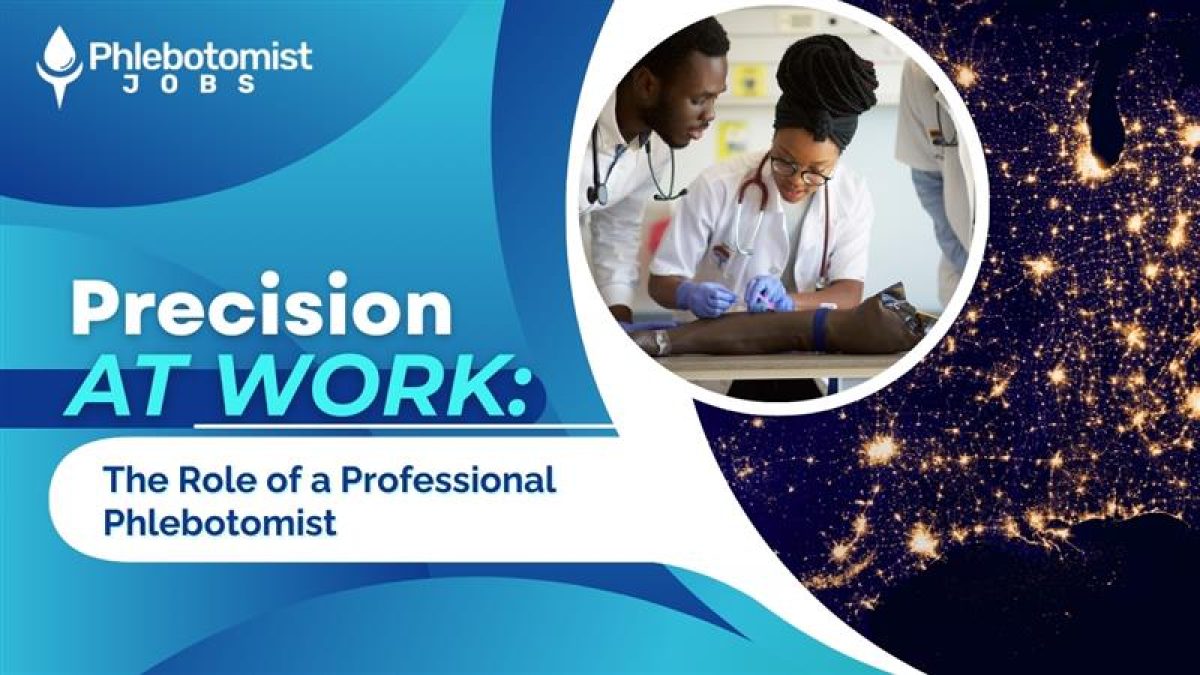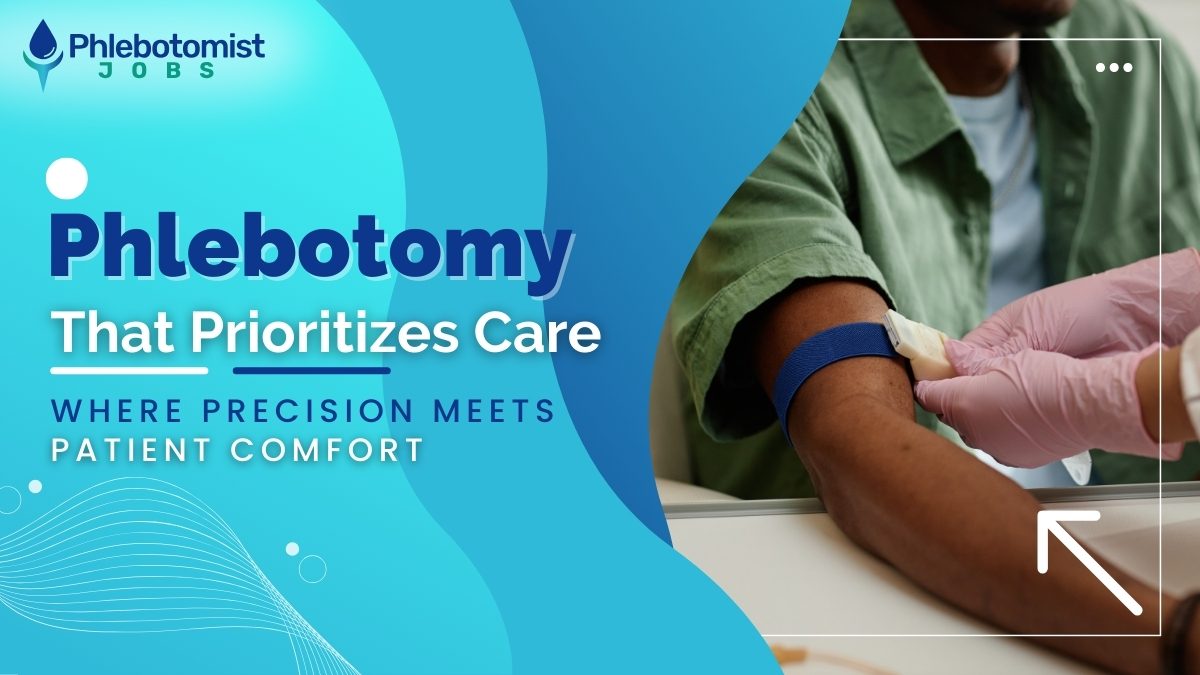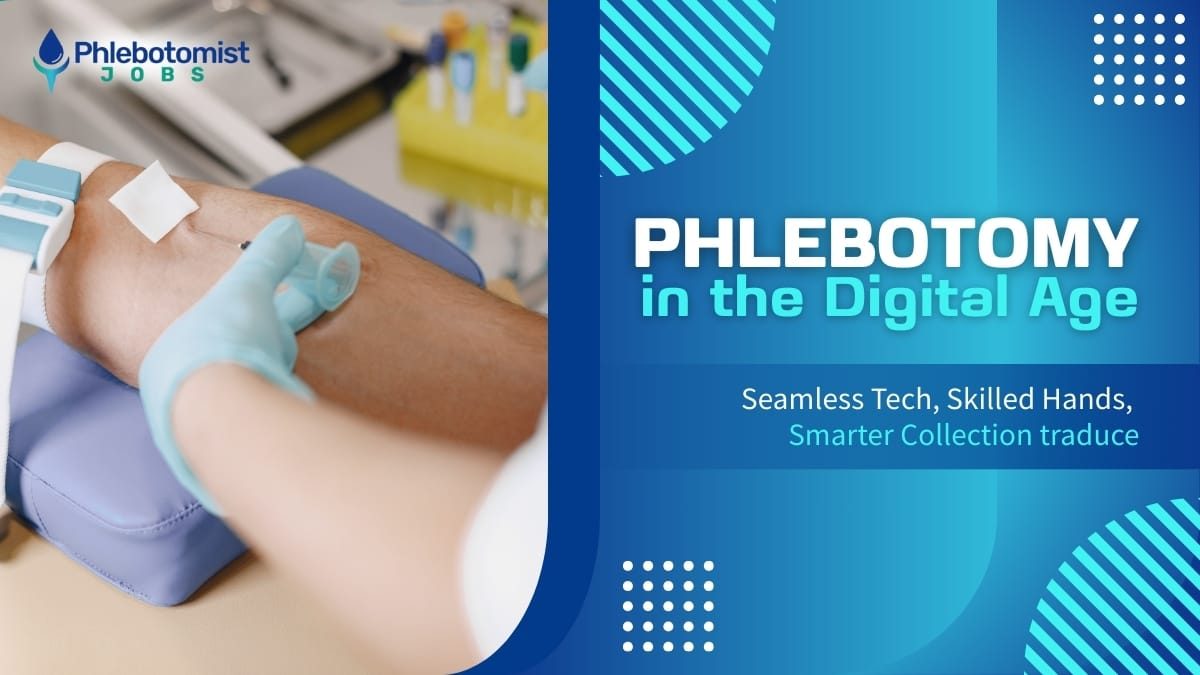Table of contents ▸
Beginning a career in healthcare is really as much challenging as it is exciting, especially for those individuals who have no older or prior experience in healthcare jobs or medical training. For someone dreaming to carve out a niche in the medical field, phlebotomy-the practical act of drawing blood for diagnostic testing, transfusions, or donations-can form an ideal entry. A phlebotomy career could be an awesome springboard to a satisfying profession in healthcare, as it requires little training, has job security, and provides advancement opportunities with little logistics.
In this post, we highlight on the three key aspects why phlebotomy can be a good first step towards a career in health, what benefits that career can offer, and how aspiring health practitioners can make use of it as an advancement within the industry.
Phlebotomy: What is It?
Understanding a Phlebotomist’s Role
A trained medical professional known as a phlebotomist draws blood from patients for various medical purposes. Their duties-patients include:
- Collects blood samples for laboratory testing
- Prepare patients for blood harvesting procedures
- Ensure comfort and safety for patients during procedure
- Properly labels and handles blood samples to avoid contamination
- Maintains sterile equipment and follows appropriate healthcare protocols
Where Do Phlebotomists Work?
Phlebotomists work in many different health settings, such as:
- Hospitals
- Diagnostic laboratories
- Blood donation centers
- Physician offices and clinic
- Nursing homes and assisted living facilities
This means that the entry-level healthcare professional is guaranteed a place of work in which such professionals are able to spend a good amount of time with direct exposure to the workings of the system.
Why Get Phlebotomy as Your First Step into Health Care?
Training that’s Quick and Within Distance
Phlebotomy training may be very short and done in just a few months, compared to many other training programs that usually take years. Training can now be community, academic, or even offered in some hospitals, mostly hands-on and classroom whole.
Thus aspiring phlebotomist encountered the following organization certifications:
- National Healthcareer Association (NHA)
- American Society for Clinical Pathology (ASCP)
- American Medical Technologists (AMT).
Such certifications would increase their employability and prove competence within the practice.
High Demand for Phlebotomists
As the demand for healthcare jobs continues to multiply, so is phlebotomy considered a high-demand profession. Bloodwork is an integral part of diagnosing and managing medical conditions, making phlebotomy one of the important healthcare members. According to the U.S Bureau of Labor Statistics (BLS), employment phlebotomists will sharply increase in the future by at least a decade.
Practical Patient Interaction
If someone is attracted to direct patient care like myself, he or she can also gain that space with respect to developing communication skills and bedside manner. The majority of their time has been spent with the patient, making them feel comfortable during blood draws, which could be a very intimidating experience for someone who fears needles.
Job Security with Competitive Salary
There is job stability in this industry since there exists an ongoing demand for medical services. Phlebotomy as a starting career provides a competitive median annual salary for entry-level positions, and more experience or specialization could translate into enhanced salary opportunities.
Promotes Career Advancement Opportunities
Phlebotomy forms the basis of advancement to several health careers, for example:
- Nursing : With training as a phlebotomist, much ability will be gained in nursing, especially as it pertains to patient care and handling medical equipment.
- Medical Laboratory Technology : Many phlebotomists have moved into lab tech positions where they analyze samples and do medical tests.
- Physician Assistant (PA) or Medical Doctor (MD) : Beginning at phlebotomy puts them on the path to an early engagement with medicine before pursuing higher degrees.
- Emergency Medical Technician (EMT) or Paramedic : Skills developed in phlebotomy will also be useful for those wishing to pursue a career in emergency medicine and pre-hospital care.
How to Become a Phlebotomist?
Research Accredited Training Institutions
An accredited training program ensures that the education received is excellent and up to industry expectations. An accredited institution should be recognized such as the National Accrediting Agency for Clinical Laboratory Sciences (NAACLS) or other similar contraries.
Complete Required Coursework and Clinical Training
Phlebotomy training usually includes:
- Anatomy and physiology of the circulatory system
- Blood collection techniques
- Infection control and safety measures
- Patient interaction and communication skills
- Hands-on clinical practice
Obtain Certification
Certification is not a requirement in most states, but it increases job worth and proves that the person is competent at the professional level. Taking a certification exam through bodies such as NHA or ASCP is a great mileage toward career success.
Get Experience and Continuous Learning
Candidates will take at least entry-level phlebotomy positions giving them a chance of gaining hands-on experience; however, additional training in specialty areas such as pediatrics or geriatrics will help professionals upscale their careers.
Future for Phlebotomy Jobs and Employment in Healthcare
Increasing Demand of Roles in Healthcare
Modern phlebotomy is increasingly coming with the job of other medical functions. Such specialists will transform their entry point from phlebotomist to very high paying, more responsible positions.
Technological Advancements in Blood Collection
Modern phlebotomy includes such advances as automated blood collection devices and systems for digital records that will make blood collection more efficient and comfortable for patients. Keeping abreast with such innovations will throw open opportunities for specialization and career advancement for a phlebotomist.
High Demand for Healthcare Workers
As the aging population gets larger and medicine improves in treatments, the number of entry-level healthcare professionals will continue to increase. It is a pathway to the industry that is realized with a high probability of security and career advancement.
Conclusion
Being a phlebotomist is a wonderful first step into the health career. They receive fairly fast track into employment, ensuring much security into the future, as far as advancement into the profession is concerned. It requires little training and covers such a vast domain, being the perfect foundation for a lifelong career in medicine.
Phlebotomists shall find doors open at every turn as they embark on a probable future in health care. Then why not take your first step and check training programs for phlebotomy in your area?
To learn more about job listings and career tips and information regarding the health care industry, follow us on our website Phlebotomist Jobs!
Follow us on Social Media: LinkedIn | Facebook | Twitter | Instagram



